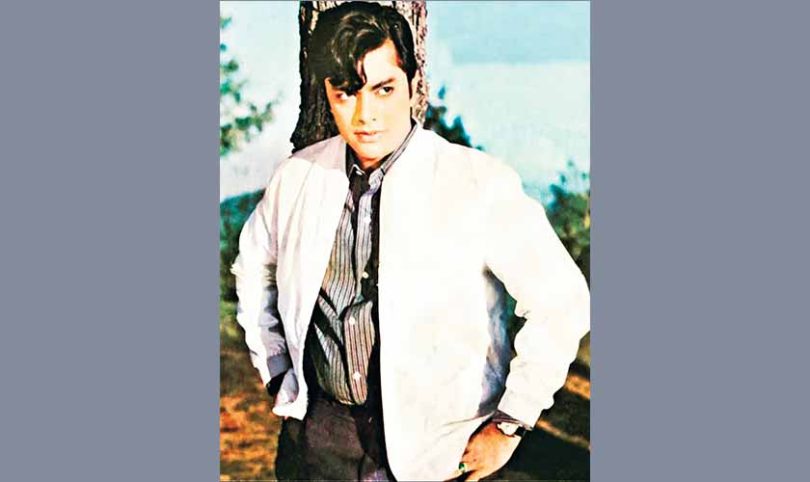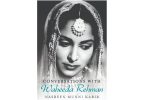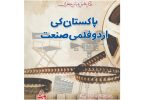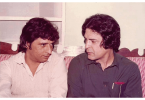Omair Alavi|Instep|November 22, 2020
Actor, filmmaker and icon of his time, Waheed Murad may have passed away in his prime but left a wealth of work that was timeless.
November 23 will always be considered a black day for Pakistani cinema because it was on that day that Waheed Murad breathed his last. The nation’s heartthrob passed away in 1983, at the young age of 45, leaving his fans shattered and heartbroken. The small consolation was the work he had done, as an actor and more significantly as a filmmaker, that was responsible for bringing around a change in Pakistan’s nascent film industry.
Instep pays tribute to the multitalented man who came, who saw and who conquered Pakistani cinema with his style as well as his vision.
Waheed Murad,
the evergreen actor
Before Waheed Murad became a successful actor, heroes on the silver screen were usually middle-aged men who had mastered high intensity drama, action, and even tragedy thanks to their training on stage and radio; romance was unfortunately not their strong suit. Along came Waheed Murad and suddenly the nation had it’s perfect romantic hero. He was not just idealized for his good looks but came across as highly relatable to the youth of the 60s. Highly educated, his Masters degree in English Literature gave him a polished edge on screen, whereas his father – Nisar Murad, a film producer and distributor – handed him the invaluable experience of how things worked behind the scenes.
Waheed Murad had inherent charm that came with his worldly knowledge, his acting, his swag and his overall sense of style that featured an iconic haircut. He knew how to film songs, something that made him a heartthrob in no time, he knew how to woo ladies on screen, and above all, was good at whatever he did. That’s why, even 37 years after his death, his fans continue to celebrate him.
Waheed Murad,
the intelligent producer
Before he became one of Pakistan’s finest actors, Waheed Murad followed his father’s footsteps and dabbled in film production. His first film, Insaan Badalta Hai (1961), starring hit-pair Darpan and Shamim Ara, directed by Munawwar Rasheed, was a success but his second film Jab Se Dekha Hai Tumhein (1963) with Zeba and newcomer Sohail Rana as the music director, flopped. That incentivized Waheed Murad to do something new. The next time he put his money in a film, besides playing the lead and introducing his friend Pervez Malik as the director, he retained Zeba and Sohail Rana and the result was Heera Aur Pathar (1964) that went onto establish Waheed Murad as a force to reckon with. And then followed Armaan (1966 – Platinum Jubilee), Ehsaan (1969 – Golden Jubilee), Samandar (1968-Silver Jubilee), Naseeb Apna Apna (1970-Silver Jubilee), Mastana Mahi (Punjabi film, 1971, Golden Jubilee), Jaal (1973-Silver Jubilee) and Hero (1985 – Silver Jubilee). Out of his 11 productions, the only film that failed was Ishara (1969-Average).
Waheed Murad,
the imaginative writer
Waheed Murad came up with the story of Pakistan’s first Platinum Jubilee film Armaan, which he also produced and acted in. Before Armaan, he was just an upcoming film actor who would have had a couple of hits to his name before eventually fading away like others but after Armaan, he became the numero uno of Pakistan’s film industry. Alongside his team of director Pervez Malik, poet Masroor Anwar, and music director Sohail Rana, ‘Film Arts’ also came up with Ehsaan that went on to do extremely well at the box office, especially since it also featured Zeba as the leading lady and Ahmed Rushdi as playback singer. With Ishara he dabbled into direction besides writing, producing, and acting which took a toll on his creativity and the film didn’t do well at the box office. After a gap of twelve years, the last time he penned a story was for Hero, which proved to be his final film before his untimely death. Unlike the films of the 1980s, this one was a thriller featuring him in a double role, and had it been completed and released during his lifetime, who knows he might have held on to its success as a lifeline.
Waheed Murad,
the visionary director
Waheed Murad could easily have been termed ‘man of many talents’ but his talents weren’t fully utilized. After producing films, writing a couple, and acting in many, he ventured into direction and came up with a movie that was way ahead of its time. Through Ishara, he not only introduced Talat Hussain to the world of cinema but also paid tribute to Buster Keaton’s iconic act where he appeared in different getups in one frame, all playing a musical instrument. In the Pakistani version, it was comedy king Lehri replicating the feat with Ahmed Rushdi providing the playback to Itne Bade Jahaan Main song. Also, the movie’s climax was more into the Hollywood territory than local because, in that iconic scene, the hero and heroine reunited in a plane that was all set for a takeoff, and their dialogues were inaudible.
Waheed Murad,
the accidental singer
Don’t be surprised to see Waheed Murad’s name mentioned alongside that of Ahmed Rushdi and Mehdi Hassan in the credits of a film because he actually did playback singing in two films. One was in his directorial venture Ishara (1969) and the other in his production Samandar (1968). In the former, he and Deeba Begum were supposed to film a song that would have been sung ideally by either Ahmed Rushdi or Mala Begum. But instead, Waheed Murad and his leading lady took on the task, as the song was supposed to be a conversation-style duet. The song ‘Jaise Taise Beet Gaya Din’ was composed by Sohail Rana and is available on YouTube, and if you watch it today, you wouldn’t believe that something like that was done fifty years back. The second time he did that was when he sang the tragic/nostalgic version of Ahmed Rushdi’s hit number ‘Saathi Tera Mera Saathi Hai’ (yes, it was a film song before it became a political anthem) in the same film.
That’s quite a legacy to leave behind, which is precisely why Waheed Murad is unforgettable.







